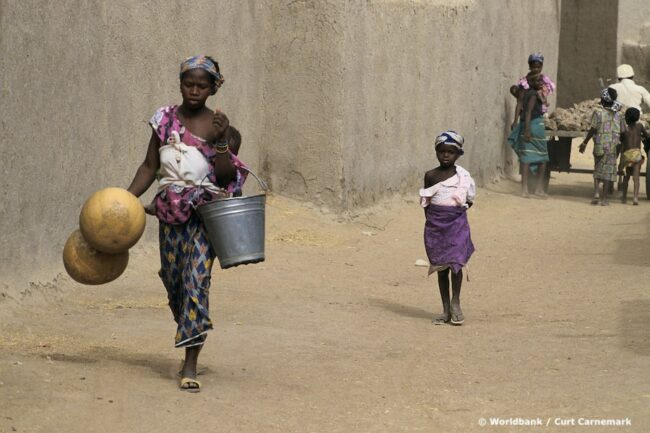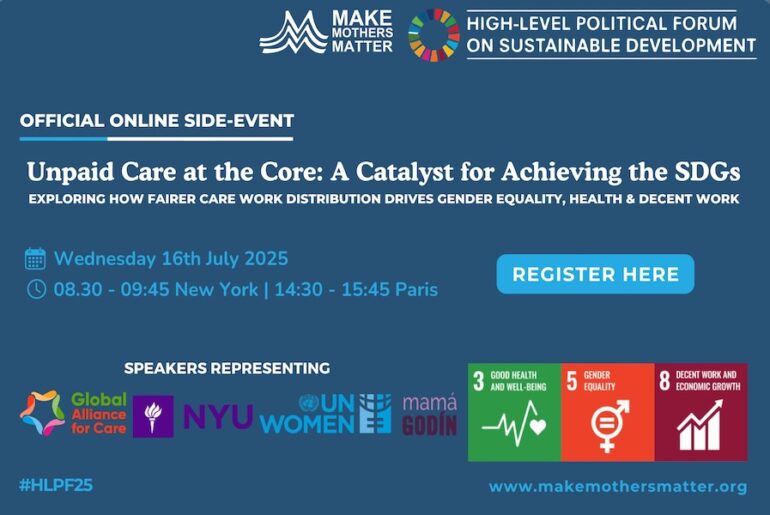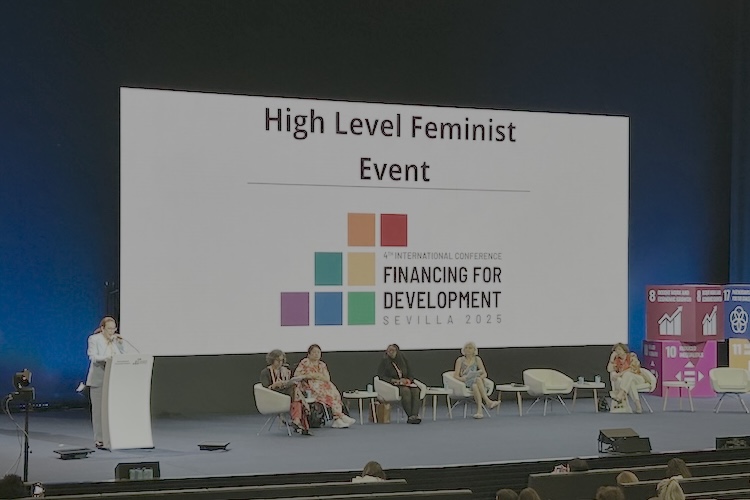A just transition must support the unpaid work of caring
07.01.25
UN Geneva - Answering a call for input for a UN report on just transition and human rights, MMM advocates a just transition centred on care. Our contribution focusses on policies and practices that, in the context of climate change, recognise and support care work – in particular the unpaid domestic, care and educational care work performed by mothers.

A ‘just transition’ is a framework used in the context of addressing climate change, to ensure that the shift to a sustainable, low-carbon economy is fair and equitable, supporting people, communities, and industries affected by the change.
Globally women continue to shoulder more than 3/4 of unpaid domestic and care work, an inequitable distribution that remains at the root of gender inequalities: it is a cause of much discrimination and the main barrier to women’s full participation in the economy and in politics, their access to decision making positions, and the realisation of many of their human rights, including their right to health and decent work.
Because climate change, like most crises, exacerbates these care-rooted inequalities, a just transition must recognise and address the disproportionate impact that climate change and other environmental crises have on the unpaid family care work shouldered by women, in particular when they are mothers. We at MMM fully support UNRISD and the Just Transition and Care Network’s call that a just transition must be care-centred.
We also see gender-responsive climate action as an opportunity for achieving the recognition and redistribution of the unpaid work, responsibilities and costs of caring, including caring for the environment.
Our answer to the call for input issued by the Office of the High Commissioner for Human Rights (OHCHR) for its report therefore highlights examples of promising commitments, laws, policies and practices that address the unpaid care work issue and that in our view should be part of a Just Transition. These are mostly from the UN Economic Commission for Latin America and the Caribbean (ECLAC) region, and the European Union (EU) and its member states, and focus on:
- the recognition of care as a right and as a common and shared responsibility
- the recognition of unpaid care work as productive & valuable work
- the establishment of national care systems
We also highlight the key role of the private sector, as well as grassroots organisations working with and for mothers, which must be properly supported.
Last but not least, a just transition requires a profound transformation of our economic and social systems: these must be repurposed to prioritise human rights, the wellbeing of both people and the planet, as well as inclusion, sustainability and equity in all policy making – with care at its centre. In other words, a just transition cannot happen without ‘shifting from a care-less to a care-full economic system’.
![]() Read MMM’s full contribution here
Read MMM’s full contribution here
Envisioning care as a common thread to global crises
29.07.24
UN New York - Our virtual HLPF side-event brought together experts to shed light on how the various global crises we face (in particular climate change and other environmental crises,
We call for multi-stakeholder approach to recognise and support unpaid care work
21.07.24
UN New York - Participating in the meeting of the UN Economic and Social Council (ECOSOC) on care and support systems, MMM reaffirmed the principle of co-responsibility, which should underpin
The New EU Gender Equality Roadmap : A Call for Inclusion of Mothers
04.03.25
The European Commission’s initiative on a new Gender Equality Roadmap post-2025, marks a significant step forward in addressing gender disparities across the European Union. Make Mothers Matter (MMM








